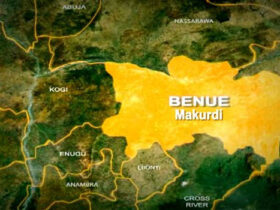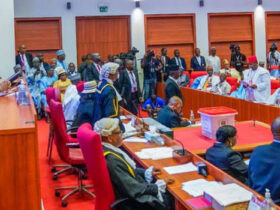
Abuja, the capital city of Nigeria, is facing a surge of kidnappings that threaten the security and stability of the country. According to Senator Shehu Sani, a vocal critic of the government, the city is also the victim of a massive corruption scandal involving a $460 million Chinese loan for the installation of CCTV cameras.
The loan, which was secured by the previous federal government in 2010, was meant to improve the surveillance and crime prevention capabilities of the city.
However, the project was never completed and the cameras have been either stolen or vandalized by elements of the past governments, Sani claimed.
The senator posted a tweet on Saturday, accusing the former administration of mismanaging the funds and failing to deliver on its promises.
He wrote: “Nigeria’s capital is experiencing an upsurge in cases of kidnappings;this is thesame city that the previous federal government secured a $460 million Chinese loan for the installation of CCTV cameras.Both the money and the Cameras have since been kidnapped by elements of the past Governments.”
The tweet has sparked outrage and debate among Nigerians, who are demanding accountability and transparency from the current and former leaders.
Many have also expressed their frustration and fear over the rising incidents of kidnappings, which have targeted both ordinary citizens and prominent figures.
According to the Nigeria Security Tracker, a project of the Council on Foreign Relations, there were 1,061 reported kidnappings in Nigeria in 2023, a 58% increase from the previous year. Abuja accounted for 196 of those cases, making it the second most affected state after Kaduna.
The kidnappers, who are often armed and violent, demand ransom payments from the victims’ families or employers. Some of the recent high-profile victims include a traditional ruler, a university professor, a journalist, and a diplomat.
Many Nigerians remain skeptical and disillusioned with the government’s performance and credibility.
They are calling for more action and less rhetoric, as well as reforms and accountability in the public sector.








Leave a Reply